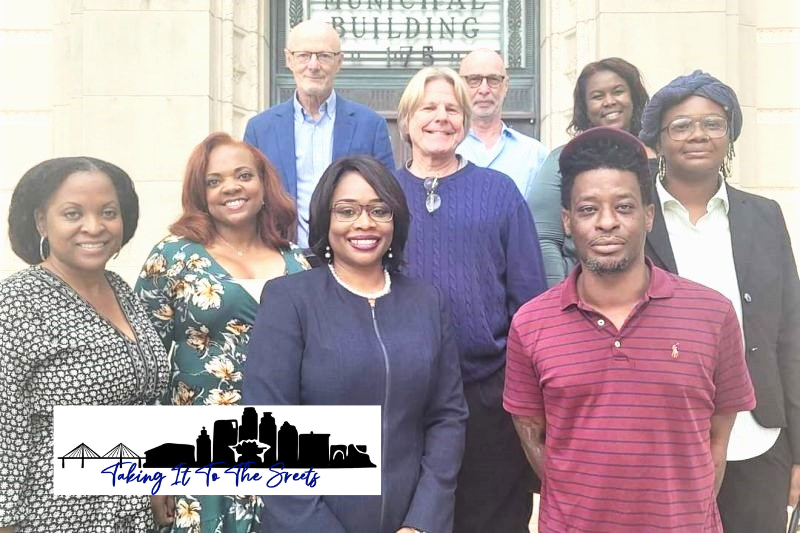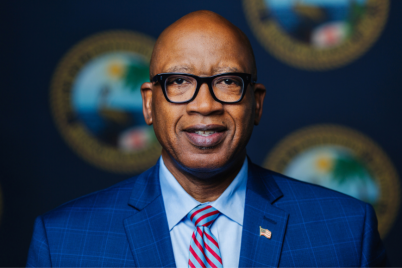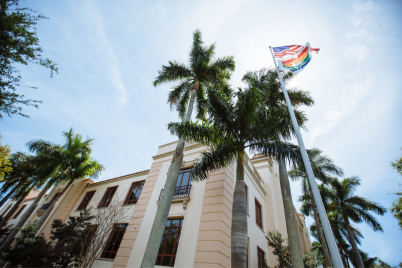Takin’ it to the Streets” — a project of St. Pete’s Structural Racism Study — is preparing to bring its work, findings and recommendations to the community.
BY J.A. JONES, Staff Writer
ST PETERSBURG – “Takin’ it to the Streets” — a project of the Building Bridges & Supporting Racial Equity in St. Petersburg Florida Structural Racism Study — is preparing to bring its work, findings and recommendations to a greater segment of the community.
The City of St. Petersburg commissioned the Structural Racism Study during the final year of former Mayor Rick Kriseman’s term. A team of researchers from the University of South Florida and several engaged and activist-minded community members led it. Its goal was to examine the historical and current impact of structural racism on the lives of Black people in St. Pete.
According to the city, the study would examine the impact of structural racism on Black life in St. Pete from the arrival of John Donaldson in 1868 to the present to:
- Provide a historical overview and current data trends that illustrate how structural racism affects the various aspects of Black life and communities, including its impact on individual and public health
- Offer recommendations for policies and practices to help dismantle structural racism in the city
- Identify the ongoing facets of structural racism impacting Black residents and communities that would need more research, documentation, and funding.
The original study was led by USF’s Dr. Ruthmae Sears, along with Dr. Johannes Reichgelt, Dr. James McHale, Gypsy Gallardo, Tim Dutton, Dr. Fenda Akiwumi, Dr. Dana Thompson-Dorsey, Gwendolyn Reese, Dr. Y. Michelle Bradham-Cousar, Jabaar Edmond, Jalessa Blackshear and Casey Lepak.
Sears noted how vital the project was, saying, “It was painful, it was memorable, but it was worth it because it’s for the greater good.” She added that the city’s Jim Crow laws and policies were very detrimental to the Black community concerning healthcare, housing, policing, job opportunities, vagrancy laws and racial terror lynchings that targeted St. Petersburg’s Black citizenry.
Nikki Gaskin-Capehart, former director of Urban Affairs under Kriseman, served as a liaison between the city and the research team at the time and shared that it was important “not to run from our history, and to be very intentional about the change that needed to happen.” She believed the study should continue and “transcend” administrations in the future.
The final recommendations of the study were:
- Continue support for the work started in this study
- Create an equity department within the purview Office of the Mayor
- Create and implement an effective accountability strategy buttressed by measurable outcomes that are tracked over time
- Take action to advance the unanimous approval of city council for the motion to create an African American Quality of Life Sunshine Committee to serve as a permanent resident race equity board or commission, thereby helping to ensure sustainability of the recommended transformation
- Evaluate the possibility of implementing a reparative approach to address disparities that have been made visible from the data and narratives of this and other reports.
The next phase of the study, called Takin’ It To The Streets (TTTS), kicked off last November with the assembly of a new team of ambassadors concerned individuals from the community. They have been tasked with sharing the information gathered in the first study with a broader audience.
Led by Reese, the team includes Blackshear as a community ambassador, Hillary Van Dyke as an education ambassador, J.A. Morton-Jones as a nonprofit ambassador, Aaron Rose as an university ambassador and Youth Ambassadors Janiah Dennard, Ashton Williams and Linsey Grove.
This phase will help all segments of the community understand the depth and breadth of how structural racism impacted the city and continues to shape St. Pete. The hope is that increased awareness and acknowledgment of the impact of the city’s racist policies on generations of Black citizens will result in more support to address and eliminate inequities that still exist.
Reese shared that TTTS will be implemented in three ways:
- Facilitated conversations, presentations, and workshops for groups and organizations, examining structural racism and its impact.
- One-on-one interviews with people who have lived experience and a willingness to tell the story of encountering racism in the areas of education, health, criminal justice, housing, or law enforcement (structural racism).
- Build a grassroots advocacy movement that addresses and eliminates ongoing structural racism in the city.
TTTS aims to stimulate community energy through these three strategies, educate St. Pete’s citizens, bring people together in joint action to create change, and encourage and reveal the strengths and abilities of neighborhoods to address community issues.
If you are interested in learning more about TTTS, want to inquire about having a presentation come to your group or organization, or share a personal experience with structural racism, please call the TTTS Project at 727-371-8025.
TTTS is funded by the Foundation for a Healthy St. Petersburg, and its mission is to achieve health equity through race equity by listening humbly, learning fearlessly and leading courageously, impacting systems change.








